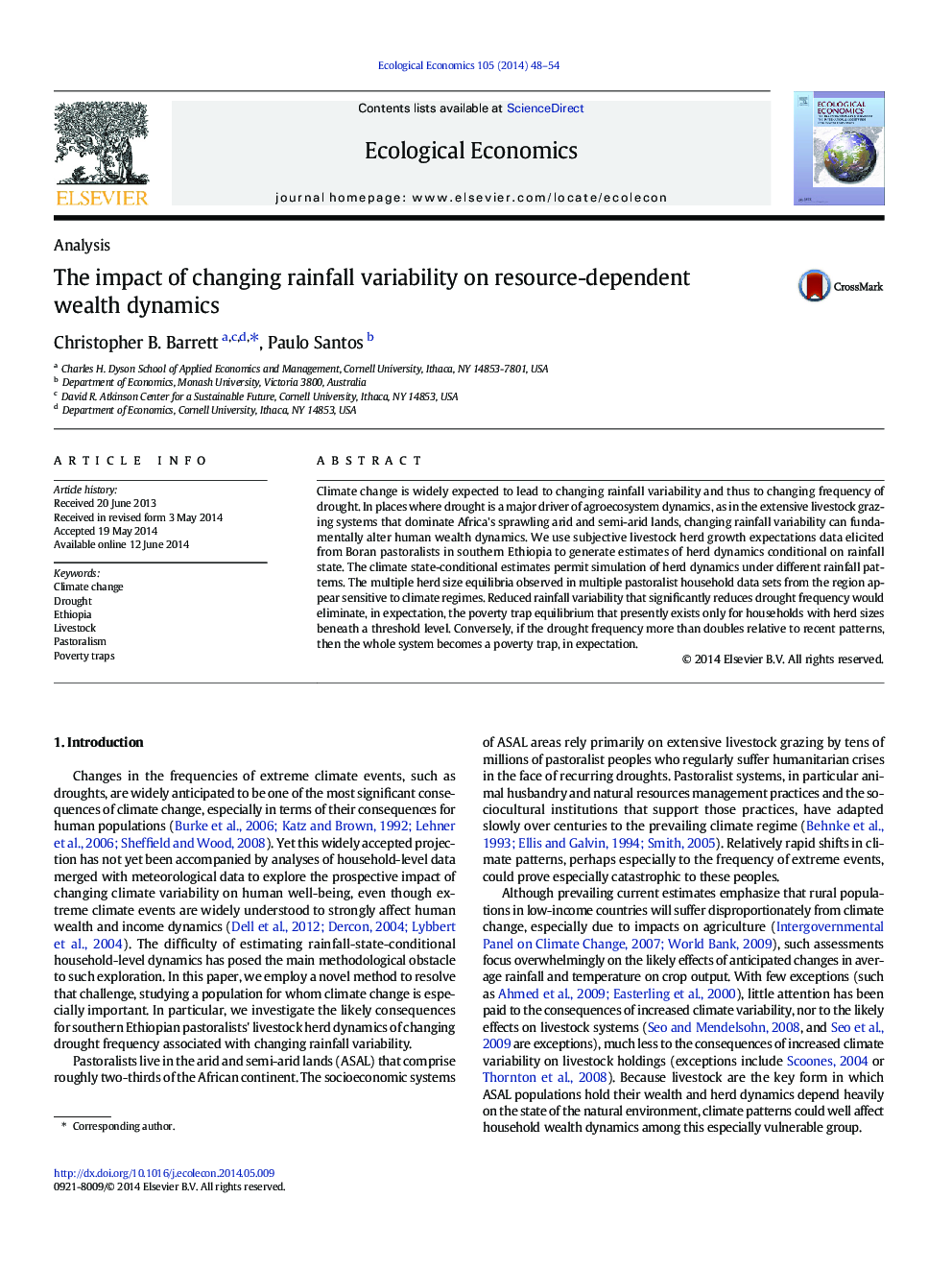| Article ID | Journal | Published Year | Pages | File Type |
|---|---|---|---|---|
| 5049703 | Ecological Economics | 2014 | 7 Pages |
Climate change is widely expected to lead to changing rainfall variability and thus to changing frequency of drought. In places where drought is a major driver of agroecosystem dynamics, as in the extensive livestock grazing systems that dominate Africa's sprawling arid and semi-arid lands, changing rainfall variability can fundamentally alter human wealth dynamics. We use subjective livestock herd growth expectations data elicited from Boran pastoralists in southern Ethiopia to generate estimates of herd dynamics conditional on rainfall state. The climate state-conditional estimates permit simulation of herd dynamics under different rainfall patterns. The multiple herd size equilibria observed in multiple pastoralist household data sets from the region appear sensitive to climate regimes. Reduced rainfall variability that significantly reduces drought frequency would eliminate, in expectation, the poverty trap equilibrium that presently exists only for households with herd sizes beneath a threshold level. Conversely, if the drought frequency more than doubles relative to recent patterns, then the whole system becomes a poverty trap, in expectation.
